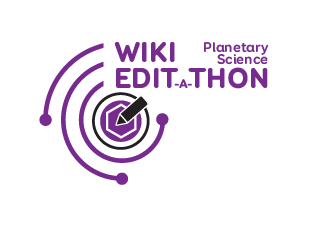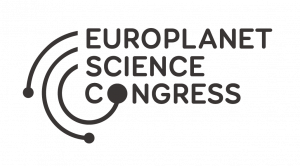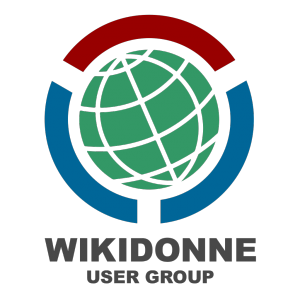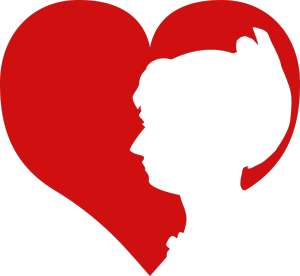At Virtual EPSC 2020, the Europlanet Society Diversity Committee announced that it is planning to initiate a new working group for all planetary scientists that would act as an ally to others in less privileged situations. Based on the DPS Allyship meetings organized in the US in the past, the Diversity Committee organized an EPSC-DPS Allyship Splinter Meeting to discuss about strategies developed in the past within DPS, the different “target groups” that need allies, and the possible differences there between US and Europe. They also talked about what specific actions potential allies could take, and what guidance or suggestions could be forwarded to organizations, networks and communities and possible actions to conduct in such organizational frameworks. This splinter meeting was specifically targeting individuals who identify with privileged groups (e.g., men, straight, white, able-bodied, or cis-gendered) to be more aware and proactive in support of equity, diversity, and inclusion.
The vice chair of the Diversity Committee, Lena Noack, opened the meeting and summarized the previous activities of the Committee, which was so far mostly focussing on gender equality, inclusion of early-career scientists, and inclusion of east-/central-European countries. Other diversity topics such as the unfair treatment of people of color were so far not studied in sufficient detail. On the other hand, members of the Diversity Committee also realized that none of them has had any much experience with the topic so far, and are thus a bit behind the curve on issues surrounding initiatives like BlackLivesMatter, Strike4BlackLives, or ShutdownSTEM. To address potential next steps to take within the Europlanet Society, the Committee decided to found a European version of the DPS Allyship Group at EPSC, after a successful DPS Allyship splinter meeting organized in Geneva at EPSC-DPS2019 (see this blog post). The first tasks of the new European working group will be to initiate itself and to recruit members that can share with us their experiences, expectations and hopes.
After the introduction explaining the purpose of the splinter meeting, a discussion started between several participants from EPSC, members of the Diversity Committee, and colleagues from DPS organizing the DPS Allyship meetings and being proactive in the PCCS of DPS – all in all 24 participants joined for the splinter meeting. The discussion quickly turned to the question if an “Allyship group” would indeed be the right name for such a work group. At what level should anyone “claim” to be an ally? It is one thing to have an allyship with underrepresented groups as a goal, but the wording of being an ally (or pursuing an allyship) somewhat implies putting oneself into the spotlight, and not the actual activities and goals in mind. In addition, the new work group that is initiated by the Diversity Committee should include not only potential “allies”, but especially members of underrepresented groups. However, some of the splinter meeting participants expressed concerns that it is always more difficult to stand up for oneself instead of for others. Those from underrepresented groups should stand up and share their voice, but it should not be their task to correct unfair treatment by privileged groups. Here a parallel can be drawn to the goal of strengthening the voice of underrepresented European countries in European activities and networks – western Europeans for example tend to lead scientific debates and aim for coordination of larger projects; often not sufficiently ensuring that others are equally involved in discussions and enabled to feed into processes and decisions.
Within the Europlanet Society, for this reason a Regional Hub structure was initiated, where countries involved in Europlanet are divided into 10 Hubs (Benelux, Central Europe, France, Germany, Ireland & UK, Italy, Northern Europe, Southeast Europe, Spain & Portugal, and Switzerland). Each hub has a representative in the different committees of the Society (including a Diversity Officer, an Outreach Officer, an Industry Officer and an Early Career Officer). This means that the Diversity Committee is well represented with respect to European nationalities, but not yet that well with respect to other aspects such as gender, people of color, ethnic backgrounds, or sexual orientation.
The Diversity Committee feeds directly into the Europlanet Society Executive Board. The Europlanet Society has as a main rule to reach everybody while focussing on diversity, instead of being a top-down organisation, but especially with respect to reaching diverse members and participants at EPSC, we still feel that we are lacking the right tools for that.
Our American colleagues mentioned at that point of our discussion, that in DPS, every 10 years a decadal survey is implemented on where the planetary society should go, including papers for example also on diversity and representation. These and similar articles give several recommendations of how we can strengthen diversity and equality in planetary sciences. In that regard it also became increasingly common in the US to provide a diversity and inclusivity statement when applying for faculty positions – an approach that is still rather rare in most European countries or networks. It was suggested that a survey within the Europlanet Society could help us gain more information on the different issues concerning equality, diversity and inclusivity in Europe in comparison to the US.
A big challenge in that regard for the diversity committee, is related to statistics. We do not have data and information related to sexual orientation, age, gender etc from some European countries. However, from this year onwards the EPSC has started taking the demographic information in the registration form on a voluntary basis. One of the participants suggested to start involving hub leads and members of the regional committee to take statistics from their regions. This will help the committee to get more information from all over Europe.
Similarly, instead of trying to build a basis for a stronger allyship, it might be beneficial to first bring the attention of the group to specific experiences of individuals.
In that direction, a group of early- to mid-career professionals from Europe started a new project a few years ago called “Did this really happen?”, collecting stories about discriminating behaviour in the scientific world (focussing mostly but not exclusively on gender-related incidents) and transforming them into easy-to-grasp cartoons. We could try to support this group by actively searching for similar examples of bad behaviour observed by privileged individuals, exclusion in work places or meetings, and other incidents that would need our attention. Such data would also help the Diversity Committee or the new working group to work on new policies and tasks.
From past experience and discussions (in European networks, but also within the DPS allyship group), different recommendations for both individuals and institutions were already suggested:
- Organize bystander trainings and implicit bias tests and/or trainings at institutes and conferences
- Write recommendation letters without gender-blended usage (some suggestions can be found here)
- Nominate candidates from different backgrounds for awards (could be accomplished as a group work, for example from such an allyship working group)
- Pass on opportunities (seminars, invited talks, etc.) to under-represented colleagues
- Keep the discussion alive on how to increase diversity, equity and inclusion, and share material and ideas with as many people as possibly
- Create specific ressources pages (from seminar pages to larger networks such as AGU)
- Write descriptions and requirements for prizes and positions in a way that they do not exclude any groups
- Formalize the review process for prize nominations and selections
The splinter meeting ended with an euphoric group planning to continue to meet at a regular basis throughout the year in a virtual meeting, discuss the current state of the situation, while inviting and engaging individuals from underrepresented groups to build up a strong network, from which something like an allyship group can indeed be built from.
In contrast to a statement that one of our splinter meeting participants was recently told — “Allyship costs if you’re doing it right” — a true allyship should be a natural behaviour towards anyone coming from a less privileged group and should not be seen as an additional workload (or worse) to increase your competition. In the end, it is up to those of us that identify with the standard privileged groups (e.g., men, straight, white, able-bodied, or cis-gendered) that are the ones that have to become more active and involved!
Are you interested in becoming involved in the discussion group that will meet virtually at a regular basis to discuss different diversity, equality and inclusivity issues, recommendations, allyship approaches, or want to share your experiences? Then please get in contact with diversity@europlanet-society.org.

 Europlanet 2024 RI has received funding from the European Union’s Horizon 2020 research and innovation programme under grant agreement No 871149.
Europlanet 2024 RI has received funding from the European Union’s Horizon 2020 research and innovation programme under grant agreement No 871149.




